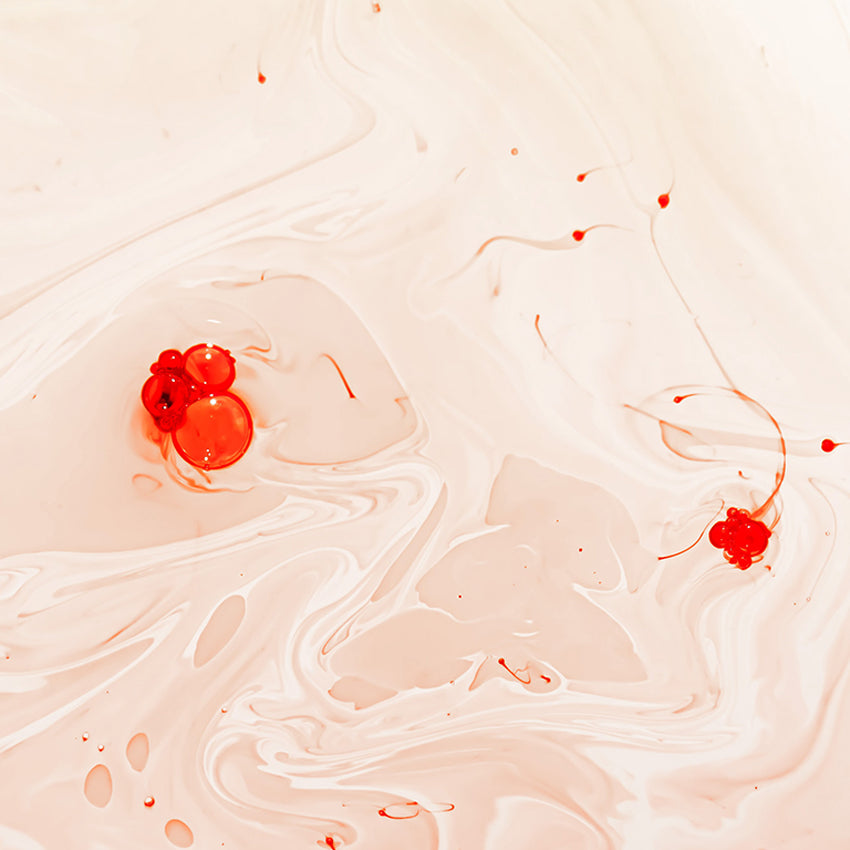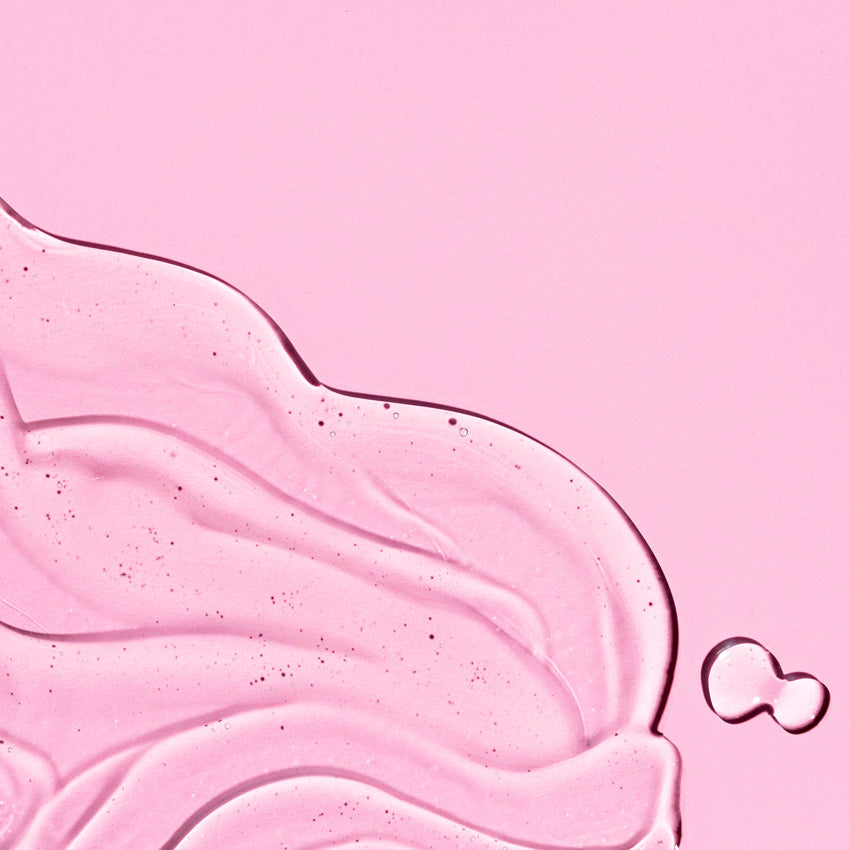Your most frequently asked questions on TikTok - Part 3.

Image by Bekah Beckman via Unsplash.
ICYMI, you can join us and our 900,000+ strong community over on TikTok @MoxieHQ for unfiltered period chat, Q&A (a little cautionary note: some of our vids may not be SFW). There are some questions that keep popping up repeatedly so we just HAD TO collate 'your most FAQs on TikTok' into another blog piece, the third in this series (scroll to the bottom for the others!).
Whether you're fairly new to periods, are yet to get your first or are a period veteran, there's likely a question in here you've all been wondering about. Here are your most current frequently asked questions on TikTok around periods, hygiene tips and intimate care.
IS IT NORMAL TO GET TWO PERIODS IN ONE MONTH?
A ‘normal’ menstrual cycle can be anywhere from around 21 – 35 days (as a general guide), but anything shorter than around three weeks should be further investigated by your doctor – especially if accompanied by any other symptoms like heavy bleeding, clots, pelvic pain or any other unusual symptoms. Remember, your period can be a bit irregular when you first start out, but you really shouldn’t be experiencing a full period every couple of weeks. See your Doc if this is you.
I'M 13 AND HAVEN'T GOT MY PERIOD YET, IS THAT NORMAL?
Yes – anywhere between 8 – 16yrs is considered normal age range to get your first period. Everyone develops differently, so don’t worry if your friends have their period and you don’t yet, or vice versa. Look to the other women in your family for when they got theirs, as that may be an indication of when yours might arrive.
If you’re worried or over 16 and haven’t yet seen your first period, chat to a trusted adult and check in with your doctor.
CAN YOU GET PREGNANT IF YOU'VE NEVER HAD SEX?
Generally speaking (i.e. without some kind of medical intervention), no, you can’t. For pregnancy to occur, there has to be male sperm and a female egg present, and this usually happens through sexual intercourse.
We get loads of questions around this topic, so to answer some more of those:
- yes, sperm can be present in pre-cum
- no, you can’t can get pregnant if he ejaculates on your leg
- you absolutely can’t get pregnant from oral sex
- you can’t get pregnant just from kissing and touching
To help avoid unwanted pregnancy, always use barrier protection like a condom (this also helps protect you and your partner from sexually transmitted infections) or you may also opt for a hormonal contraceptive like the oral contraceptive pill. Chat to your doctor about the options that may be best suited to you.
HOW DO I PREVENT PAD LEAKS AT NIGHT?
Opt for an extra long overnight pad with a double set of wings that will help keep it in place, and make sure it’s positioned correctly. If you tend to be a front sleeper, you may want to position your pad further forward to stop leaks out the front. If you sleep on your back, position your pad a little further towards the back of your undies.
IS IT NORMAL NOT TO HAVE PERIOD CRAMPS?
Yes, it's totally normal not to get period cramps! Not everyone gets period cramps - and if you're one of the lucky ones, that doesn’t mean anything’s wrong. Every body is different, and some people just have smoother cycles thanks to things like genetics, hormones, or even lifestyle habits like regular exercise or less stress. You might also have fewer cramps if you’re on hormonal birth control. So if your period shows up like clockwork and you’re not doubled over in pain, consider it a win. No cramps? No problem. That said, mild cramping is also considered normal, but anything that feels off or really painful to the point where you can't go about your regular daily activities should be investigated by your doctor.
WHY AM I BLEEDING BETWEEN PERIODS?
If you experience spotting in between periods and are on hormonal birth control (i.e. ‘the pill’), it might be that you’ve accidentally missed a few, causing what is known as ‘breakthrough bleeding’. If not, spotting in between periods can be caused by a heap of things – hormone fluctuations, stress, a uterine health condition, pregnancy, or may be a result of you taking the morning after pill (a.k.a 'Plan B'). If it persists and you’re worried about it, see your Doctor.
HOW DO YOU PREVENT YEAST INFECTIONS?
ICYMI, yeast infections, a.k.a. thrush, are caused by an overgrowth of the bacteria candida albicans – so to avoid this bacteria breeding, don’t stay in wet bathers or sweaty gym clothes longer than you need to, wear breathable fibres (like cotton undies), take a probiotic if you’re on antibiotics, don’t use scented soaps or products down there, bathe daily and dry yourself properly, and wipe front to back.
Yeast infections can be pesky, uncomfortable, and recurring. You should seek treatment for them as it’s unlikely they will go away on their own. You shouldn’t be embarrassed to either talk to a trusted adult (if you’re young) and see your Doctor for treatment if you need it.
CAN YOU SLEEP WITH A TAMPON IN?
Tampons are generally not recommended for sleeping, as they cannot be worn for longer than 8hrs at a time (max) due to the risks associated with Toxic Shock Syndrome. As many of us sleep for longer than 8hrs (or run the risk of over-sleeping!), it's too risky to leave them in overnight. Overnight pads or period underwear are recommended for overnight use, instead.
CAN YOU MAKE YOUR FIRST PERIOD START SOONER?
The timing of your first period is primarily determined by your hormones, genetics and physical development - there are no scientifically proven methods to accelerate this natural process. Eating a balanced diet, maintaining a healthy lifestyle and staying active are the best ways to support your body's development. Always consult with a healthcare provider for advice and information tailored to your individual health needs, and if you don't see your period by 16yrs, talk to a trusted adult and make an appointment to see your doctor.
DOES YOUR VAGINA GET LOOSER IF YOU HAVE SEX WITH LOTS OF PEOPLE?
The short answer is no, regular intercourse or sex with multiple partners does not permanently alter vaginal tightness. Factors like aging and childbirth can have more significant impacts due to hormonal changes and muscle stretching. Remember, your vagina is a muscular and highly elastic organ that is designed to return to its normal size after sexual activity!
Engaging in pelvic floor exercises, such as 'Kegels', can help maintain vaginal elasticity and strength. If you have concerns about vaginal tightness or changes in your body, chat to your doctor. They may refer you to a pelvic physiotherapist, who can assist with strengthening the muscles in your pelvic floor.
WHAT SHOULD I DO IF I GET WHITE DISCHARGE?
White discharge is normal, unless it is a cottage cheese-like clumpy texture, smells fishy or off in any way, or is accompanied by burning, itching, stinging or redness around your vagina or vulva. These all may be signs of some kind of infection that need treatment, so make an appointment to see your doctor.
IS IT NORMAL TO BLEED AFTER SEX?
Common causes of bleeding after sex include vaginal dryness, vigorous activity, or minor injuries to the vaginal walls during intercourse. Though it's important to consider other factors such as infections, cervical polyps, or changes in hormonal levels which could also lead to bleeding. To help avoid bleeding after sex, make sure you're feeling aroused, are using adequate lubrication and ensure gentle practices.
If you frequently experience bleeding after sex, talk to your healthcare provider to help rule out any underlying conditions and receive appropriate treatment and advice.
CAN YOU HAVE A SHOWER OR BATH WHILST ON YOUR PERIOD?
Yes, taking a bath or shower whilst you have your period is not only safe, but strongly recommended! It's important to always practice good hygeiene, and keep things fresh and clean - remember though, your vagina is a self-cleaning organ, so no putting anything inside it to clean it. Clean the vulva (outside skin ares) only - pubic area and in between the labia - with warm water, and you can use a mild, pH-balanced soap if you like.
Note: You don't need to wear period care in the shower or bath - your period isn't going to come gushing out of you and even if it does, it will just wash down the drain, it's really no big deal.
GOT MORE QNS? JOIN THE CONVO AND OUR COMMUNITY @MOXIEHQ ON TIKTOK
NOTE: just like the discussions had an info provided on TikTok, the information provided here does not constitute medical advice or replace a personalised medical diagnosis from your GP or a medical professional. The aim is to inform and encourage you to get to know your flow and your body, and get checked if things seem off in any way.



